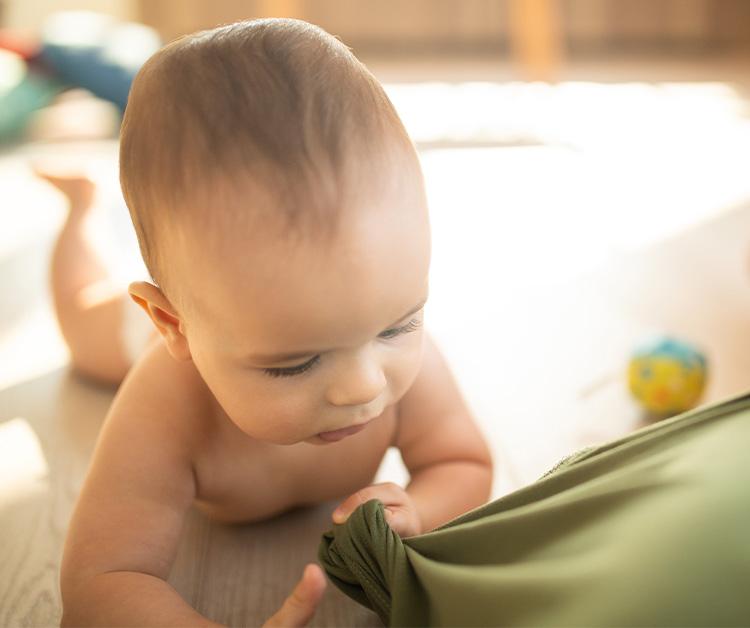
Why does my baby drop toys and want them back, only to toss them again? Here’s what it means.
Medically reviewed by a board-certified pediatrician
They drop it. You give it back. They drop it. You give it back. They drop it…. What gives? Is this a game? And when will it stop? Good news: There's a whole other type of learning happening here. A baby at 9 months uses repetitive actions to develop their motor skills among other things.
At around 9 months, your baby might want to know what happens when objects are dropped from different heights or in different ways. Where do they go? Do they always end up in the same place? What does it sound like when it lands? What happens next? It’s not just to test you. These are natural discoveries at this age.
Babies learn about the world—and you—by observation and interaction. That's why they grab, mouth, shake, crinkle, and bat at so many different objects. Each of these experiences helps them understand what things feel like, how heavy something is, what it's used for, what it smells and tastes like, and what they can and cannot do with it.
Trial and error is a big part of learning. But it takes many different tries for them to get the message. You didn't like it when I threw the toy off this side of my high chair, but what about that side? You didn't like it when I threw my spoon, but what about my cracker? What about my bowl? Behavior that looks like it’s silly or random is actually your child deep in scientist mode.
This is also how your baby learns about their relationship with you. When they do something, you respond. That alone teaches them that you care. They learn from the nature of your responses, too. Are you happy? Angry? Exasperated? Your baby absorbs all this useful information.
From a motor skills standpoint, babies are better at grasping objects than letting them go for much of their early months. Once they begin to develop the fine motor control that allows them to release something at will, it becomes something they want to practice and practice and practice.
And, if you’re still wondering, to some extent, your 9-month-old likes to drop things simply because they can. Here’s what you can expect in the coming months.
All information on Enfamil, including but not limited to information about health, medical conditions, and nutrition, is intended for your general knowledge and is not a substitute for a healthcare professional's medical identification, advice, or management for specific medical conditions. You should seek medical care and consult your doctor or pediatrician for any specific health or nutrition issues. Never disregard professional medical advice or delay seeking medical treatment, care, or help because of information you have read on Enfamil.